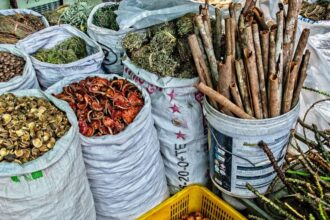Gunfire was heard on Tuesday at an army base outside Mali’s capital Bamako. The Norwegian Embassy and security sources said a possible mutiny was under way.
Opponents of President Ibrahim Boubacar Keita have led mass protests since June calling on Keita to resign over what they say are his failures to restore security and address corruption. Following are details on the origins of the crisis and the risks it poses to the region.
WHAT IS CAUSING THE PROTESTS?
1. Disputed elections
Political tension has been simmering since Keita won reelection in August 2018 in a poll that opposition parties said was marred by irregularities.
The government pushed ahead with a legislative election in March despite the coronavirus outbreak, increasing jihadi attacks and the kidnapping by unidentified gunmen of Mali’s main opposition leader, Soumaila Cisse. He has not been heard of since.
Protesters are angry about a decision by the constitutional court to overturn 31 of the results, handing Keita’s party 10 more parliamentary seats and making it the largest bloc.
2. Islamist violence
Mali has struggled to regain stability since 2012, when ethnic Tuareg rebels and loosely aligned jihadists seized the northern two-thirds of the country, leading former colonial power France to intervene to temporarily beat them back.
Attacks have increased in recent months, as militants seek to extend their reach, stocking ethnic tensions around central Mali.
3. Corruption
Keita’s opponents accuse the government of cronyism, pointing to the influence of his son Karim Keita, who stepped down from the powerful position of chairman of parliament’s defense and security committee in July. The government denies the accusations.
4. Economic hardship
Mali’s economy, which depends on gold and cotton, has been hard-hit by the insurgency and COVID-19 pandemic. Striking teachers joined a protest in June to press demands for promised salary increases.
WHY ARE MALI’S NEIGHBOURS AND ALLIES WORRIED?
1. Regional stability
Groups linked to al Qaeda and Islamic State have used Mali as a launchpad for attacks in neighbouring countries, including Niger and Burkina Faso.
International powers are also anxious for the crisis to end, fearful it could undermine multi-billion-dollar efforts spearheaded by France to contain the militants.
2. Migration
European leaders worry that prolonged instability in Mali could see more people displaced, fuelling another wave of migration to their shores.
3. Coup fears
Regional leaders are also concerned about the precedent set if Keita is forced to step down. Mediators from the Economic Community of West African States have proposed the creation of a unity government but draw the line at what they describe as an unconstitutional change in power in a region notorious for military coups.
Source: af.reuters.com














